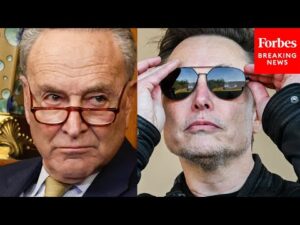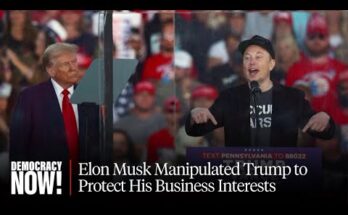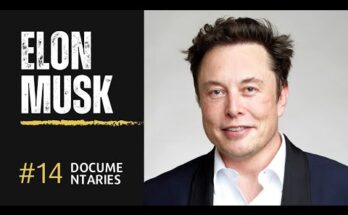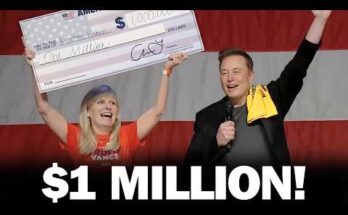Breaking Down Elon Musk’s Opposition to the Congressional Bill
In a move that has ignited widespread debate, Elon Musk, the visionary entrepreneur behind companies like Tesla, SpaceX, and X (formerly Twitter), has publicly stated that the Congressional bill aimed at averting a government shutdown “should not pass.” Musk’s statement has thrust him into the center of political discourse, raising questions about the intersection of business, politics, and governance. This article explores the context of Musk’s comments, the implications of his stance, and the broader reactions to his position.
The Government Shutdown Debate: Context and Stakes
A government shutdown occurs when Congress fails to pass the necessary appropriations bills to fund federal operations. Such shutdowns disrupt a wide range of services, from national parks to critical welfare programs, and leave thousands of federal employees furloughed. As the deadline to pass the bill approaches, lawmakers scramble to broker a deal to prevent the potential chaos.
The current bill, a stopgap measure known as a continuing resolution (CR), seeks to keep the government running while Congress debates long-term budgetary priorities. However, such measures often come with trade-offs, leading to opposition from various corners of the political spectrum. Musk’s entry into this debate has added a layer of complexity to an already fraught situation.
Elon Musk’s Critique: What Did He Say?
Musk’s exact words, shared on his social media platform X, read: “The Congressional bill to avert a government shutdown should not pass. We need real reform, not another stopgap.” This concise yet impactful statement suggests that Musk sees the bill as a band-aid solution to deeper systemic issues in government funding and fiscal policy.
But why would a tech mogul, whose primary focus is on innovation and industry, weigh in on a matter of federal governance? To understand this, one must consider Musk’s history of engaging with political and social issues.
Musk’s Political Engagement: A Brief Overview
Musk is no stranger to political discourse. Over the years, he has voiced opinions on topics ranging from environmental policies to free speech. For instance:
- Climate Change and Renewable Energy: Musk has been a staunch advocate for transitioning to renewable energy, often clashing with policymakers who prioritize fossil fuels.
- Space Exploration Funding: As the CEO of SpaceX, Musk has lobbied for increased NASA funding and favorable regulatory conditions for private space ventures.
- Free Speech and Censorship: Since acquiring X, Musk has positioned himself as a defender of free speech, frequently criticizing government overreach in regulating online content.
Musk’s latest comments align with his broader narrative of advocating for systemic change rather than temporary fixes.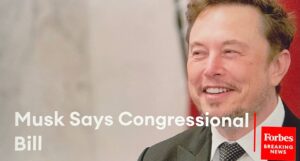
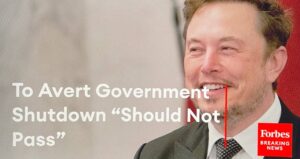
Potential Reasons Behind Musk’s Opposition
While Musk has not elaborated on his reasons, several plausible explanations emerge:
- Fiscal Responsibility: Musk may believe that continuous reliance on stopgap measures signals a lack of fiscal discipline and hinders long-term economic stability.
- Government Inefficiency: A frequent critic of bureaucracy, Musk might see the bill as perpetuating inefficiencies in the legislative process.
- Economic Impact on Business: A shutdown—or its avoidance through unsustainable measures—could have indirect effects on industries Musk operates in, such as aerospace and automotive sectors.
Reactions to Musk’s Stance
Political Figures
Musk’s statement has drawn mixed reactions from lawmakers:
- Supportive Voices: Some fiscal conservatives have echoed Musk’s sentiment, arguing that a shutdown might force Congress to address long-standing budgetary issues.
- Critics: Progressive lawmakers and moderates have criticized Musk for oversimplifying a complex issue, suggesting that his stance reflects a lack of understanding of government operations.
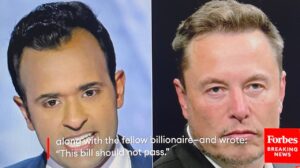
Public Opinion
Social media platforms have been ablaze with opinions:
- Supporters: Many of Musk’s followers agree, viewing his statement as a call to action for meaningful reform.
- Detractors: Others accuse him of using his influence irresponsibly, arguing that averting a shutdown is a moral imperative.
Business Community
Within the business sector, reactions are equally divided. While some CEOs admire Musk’s willingness to challenge the status quo, others worry that his remarks could destabilize markets.
The Broader Implications of Musk’s Comments
Musk’s opposition to the bill highlights a growing trend of business leaders stepping into political arenas. As figures like Musk wield significant influence, their opinions can shape public discourse and potentially sway policy decisions. However, this raises questions about accountability and expertise.
Moreover, Musk’s comments underscore the limitations of stopgap measures in addressing systemic issues. While continuing resolutions prevent immediate crises, they fail to resolve underlying disagreements over spending priorities, taxation, and debt management.
Pathways to Reform: What Could Replace Stopgap Measures?
If not a continuing resolution, what alternatives exist? Experts propose several reforms:
- Bipartisan Budget Agreements: Encourage long-term compromises to reduce reliance on temporary fixes.
- Automatic Stabilizers: Implement mechanisms that ensure essential government functions continue without requiring frequent legislative intervention.
- Fiscal Discipline Rules: Establish stricter guidelines for budget approval to avoid last-minute brinkmanship.
Musk’s call for “real reform” aligns with these suggestions, though achieving them would require overcoming significant political hurdles.
Conclusion: Musk’s Role in Shaping Political Discourse
Elon Musk’s opposition to the Congressional bill reflects his broader critique of inefficiency and short-term thinking in governance. While his stance has sparked controversy, it also serves as a catalyst for deeper conversations about fiscal responsibility and legislative reform.
As the debate unfolds, Musk’s comments remind us of the growing influence of business leaders in shaping not just markets but also public policy. Whether one agrees with him or not, his ability to ignite such discussions underscores the power of his platform and the importance of engaging with diverse perspectives in tackling complex issues.

